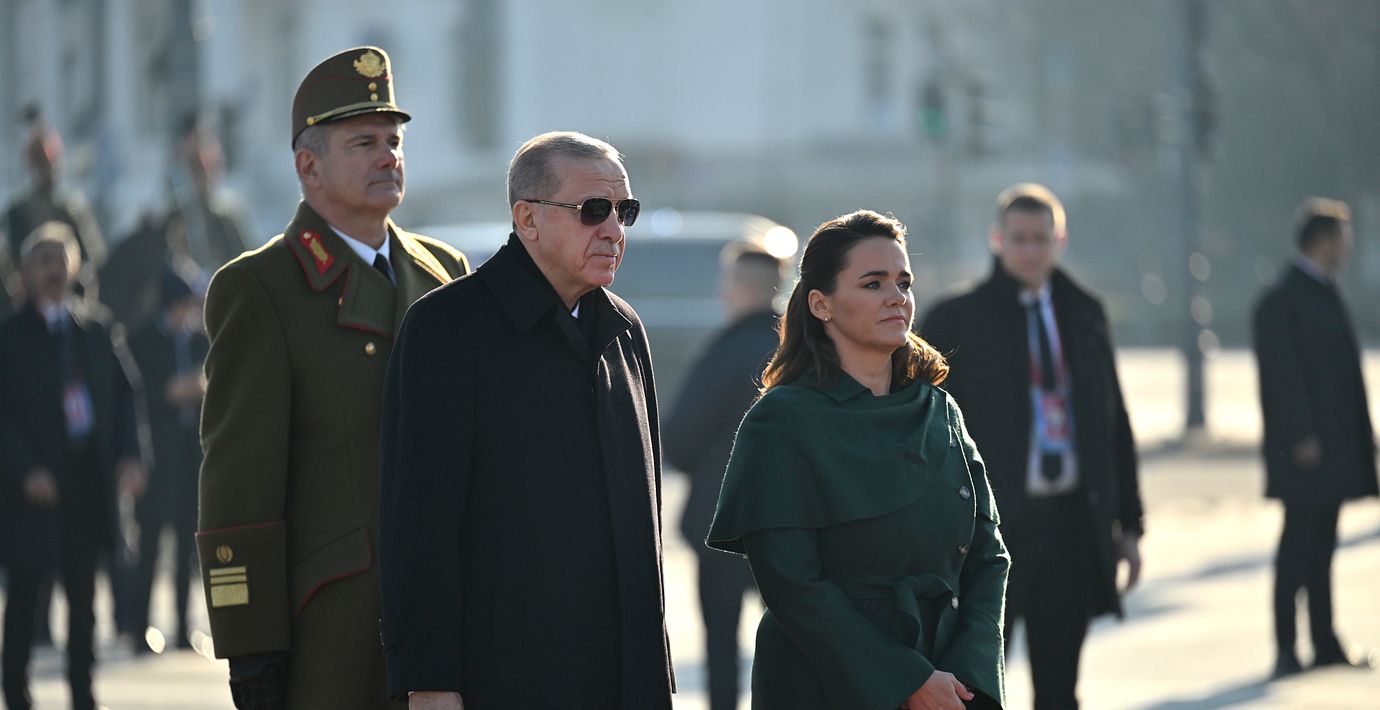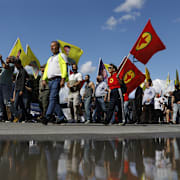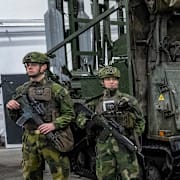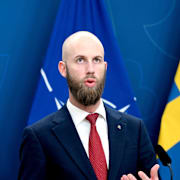
Flera medier: Turkisk omröstning kan ske i dag
Sveriges Natoansökan kan tas upp i Turkiets parlament redan i dag, enligt uppgift till TT. CNN Türk rapporterar samma sak, medan AFP:s källor talar om en omröstning på torsdag.
Processen är att en debatt först hålls. Därefter kan en omröstning ske. När parlamentet i april förra året röstade om Finlands ansökan var voteringen inte klar förrän strax före klockan 23, svensk tid, skriver nyhetsbyrån.
Om parlamentet säger ja kan president Erdogan formellt godkänna den lag som ratificerar Sveriges medlemskap. Då har det näst sista hindret för ett svenskt medlemskap röjts. Bara Ungerns godkännande återstår efter Turkiets.
bakgrund
Utvidgningen av Nato
Wikipedia (en)
NATO is a military alliance of thirty-one European and North American countries that constitutes a system of collective defense. The process of joining the alliance is governed by Article 10 of the North Atlantic Treaty, which allows for the invitation of "other European States" only and by subsequent agreements. Countries wishing to join must meet certain requirements and complete a multi-step process involving political dialog and military integration. The accession process is overseen by the North Atlantic Council, NATO's governing body. NATO was formed in 1949 with twelve founding members and has added new members nine times. The first additions were Greece and Turkey in 1952. In May 1955, West Germany joined NATO, which was one of the conditions agreed to as part of the end of the country's occupation by France, the United Kingdom, and the United States, prompting the Soviet Union to form its own collective security alliance (commonly called the Warsaw Pact) later that month. Following the end of the Franco regime, newly democratic Spain chose to join NATO in 1982.
In 1990, the negotiators reached an agreement that a reunified Germany would be in NATO under West Germany's existing membership. Following the dissolution of the Soviet Union in 1991, many former Warsaw Pact and post-Soviet states sought to join NATO. Poland, Hungary, and the Czech Republic became NATO members in 1999, amid much debate within NATO itself and Russian opposition. NATO then formalized the process of joining the organization with "Membership Action Plans", which aided the accession of seven Central and Eastern Europe countries shortly before the 2004 Istanbul summit: Bulgaria, Estonia, Latvia, Lithuania, Romania, Slovakia, and Slovenia. Two countries on the Adriatic Sea—Albania and Croatia—joined on 1 April 2009 before the 2009 Strasbourg–Kehl summit. The next member states to join NATO were Montenegro on 5 June 2017, and North Macedonia on 27 March 2020.
Russia invaded Ukraine in 2022 after Russia's president, Vladimir Putin, falsely claimed that NATO military infrastructure was being built up inside Ukraine and that Ukraine's potential future membership was a threat. Russia's invasion prompted Finland and Sweden to apply for NATO membership in May 2022. Finland joined on 4 April 2023, while the ratification process for Sweden is ongoing. Ukraine applied for NATO membership in September 2022 after Russia proclaimed the annexation of its territory. Two other states have formally informed NATO of their membership aspirations: Bosnia and Herzegovina and Georgia. Kosovo also aspires to join NATO. Joining the alliance is a debate topic in several other European countries outside the alliance, including Austria, Cyprus, Ireland, Malta, Moldova, and Serbia.
Omni är politiskt obundna och oberoende. Vi strävar efter att ge fler perspektiv på nyheterna. Har du frågor eller synpunkter kring vår rapportering? Kontakta redaktionen



